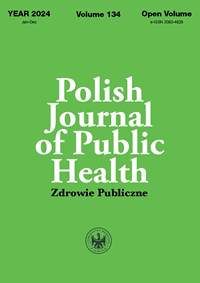Pharmaceutical care in Poland, the USA and the UK
DOI:
https://doi.org/10.12923/2083-4829/2024-0002Keywords:
medication management service, the Patient-Centered Approach, rational drug usage, Pharmaceutical Care Practice, pharmacist’s contributionAbstract
This study delves into the evolution and current state of pharmaceutical care in Poland, the United States, and the United Kingdom, highlighting similarities and differences in their approaches, regulations, and outcomes. Beginning with the legal frameworks governing pharmaceutical care, the analysis explores the progression of pharmaceutical services in each country over the past decade, emphasizing the focus on patient-centered care, evidence-based practices, and regulatory oversight. Key components of pharmaceutical care, such as medication management, adherence initiatives, and technological advancements, are examined within the context of each nation’s healthcare system. While all three countries prioritize patient well-being and accessibility to pharmaceutical services, variations emerge in government involvement, healthcare professional collaboration, pharmaceutical industry influence, medication accessibility, and cultural factors. Policymakers and healthcare practitioners seeking to enhance pharmaceutical care globally must acknowledge these distinctions to tailor interventions effectively.
References
1. Dong PTX, Trinh HT, Nguyen DH, et al. Implementing clinical pharmacy activities in hospital setting in Vietnam: current status from a national survey. BMC Health Services Res. 2022; 22(1).
2. Merks P, Kaźmierczak J, Olszewska A, et al. Comparison of factors influencing patient choice of community pharmacy in Poland and in the UK, and identification of components of pharmaceutical care. Patient Prefer Adherence. 2014;8:715-26.
3. Plewka B, Waszyk-Nowaczyk M, Cerbin M, et al. The role of active learning methods in teaching pharmaceutical care – Scoping review. Heliyon. 2023;9:e13227.
4. Gavurova B, Ivankova V, Rigelsky M. Relationships between perceived stress, depression and alcohol use disorders in university students during the COVID-19 pandemic: A socio-economic dimension. Int J Environ Res Public Health. 2020;17(23):8853.
5. Krzyżaniak N, Pawłowska I, Pawłowski L, et al. Pharmaceutical care in the neonatal intensive care unit: Perspectives of Polish medical and pharmacy students. Curr Pharm Teach Learn. 2019;11(4):361-72.
6. Kopciuch D, Paczkowska A, Zaprutko T, et al. A survey of pharmacists’ knowledge, attitudes and barriers in pharmaceutical care concept in Poland. BMC Med Edu. 2021;21(1).
7. Zheng Y, Liu S, Fan C, et al. Holistic quality evaluation of Qingwen Baidu Decoction and its anti-inflammatory effects. J Ethnopharmacol. 2020;263:113145.
8. Al Raiisi F. Implementation of pharmaceutical care service: renal perspectives. [https://rgu-repository.worktribe.com/output/318981/implementation-of-pharmaceutical-care-service-renal-perspectives]
9. Davies M, Rolewicz L, Schlepper L, et al. Locked out? Prisoners’ use of hospital care. Res Summary. Nuffield Trust; 2020.
10. Shawahna R. Quality indicators of pharmaceutical care for integrative healthcare: A scoping review of indicators developed using the Delphi Technique. Evid Based Complement Alternat Med. 2020;2020:9131850.
11. Luz TCB, Tavares NUL, Marques IC, et al.. An analysis of the essential medicines policy in primary care: Findings from MedMinas project. Front Pharmacol. 2022;13:953329.
12. Milanowski B, Wosicka-Frąckowiak H, Główka E, et al. Optimization and evaluation of the in vitro permeation parameters of topical products with non-steroidal anti-inflammatory drugs through Strat-M® Membrane. Pharmaceutics. 2021;13(8):1305.
13. Anderegg MD, Gums TH, Uribe L, et al. Physician – pharmacist collaborative management. Hypertension. 2016;68(5):1314-20.
14. Bartuzi D, Kędzierska E, Targowska-Duda KM, et al. Funnel metadynamics and behavioral studies reveal complex effect of D2AAK1 ligand on anxiety-like processes. Sci Rep. 2022;12(1).
15. Writing Committee for the VISION Study Investigators, Devereaux PJ, Biccard BM, et al. Association of postoperative high-sensitivity troponin levels with myocardial injury and 30-day mortality among patients undergoing noncardiac surgery. JAMA. 2017;317(16):1642-51.
16. Siegrist S, Cörek E, Detampel P, et al. Preclinical hazard evaluation strategy for nanomedicines. Nanotoxicology. 2018;13(1):73-99.
17. Jankowska-Polańska, B, Uchmanowicz B, Kujawska-Danecka H, et al. Assessment of frailty syndrome using Edmonton frailty scale in Polish elderly sample. Aging Male. 2019;22(3):177-86.
18. Schmidt U, Frewer A, Sprumont D. Ethical research, The Declaration of Helsinki, and the past, present, and future of human experimentation. Ulf Schmidt, Andreas Frewer, and Dominique Sprumont; 2020.
19. Sutherland A, Phipps DL, Tomlin S, et al. Mapping the prevalence and nature of drug related problems among hospitalised children in the United Kingdom: a systematic review. BMC Pediatrics. 2019;19(1).
Downloads
Published
Issue
Section
License
Copyright (c) 2024 Authors

This work is licensed under a Creative Commons Attribution-NonCommercial-NoDerivatives 3.0 Unported License.


